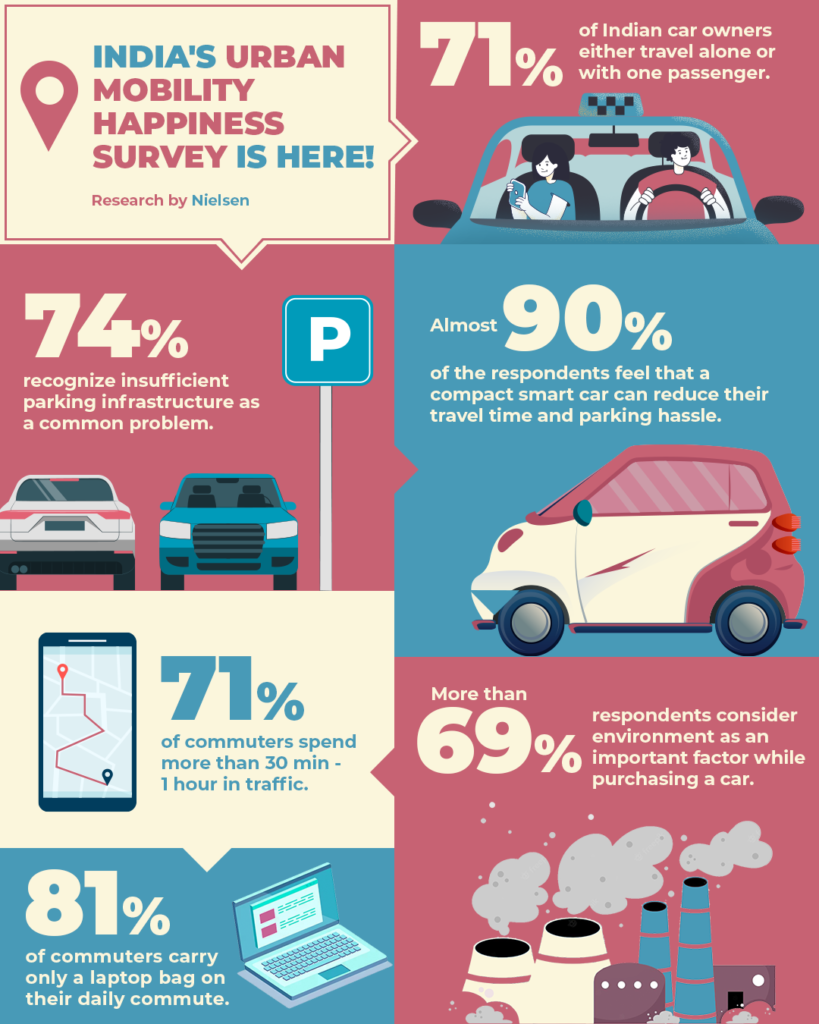Estimated reading time: 3 minutes
Nielsen conducted a survey on Urban Mobility Happiness on behalf of Motor India, which revealed valuable insights into the mobility patterns and challenges faced by commuters in major Indian cities. The findings of the survey provide an overview of the state of urban mobility in India and can be helpful to policymakers and other stakeholders in improving urban mobility infrastructure.
The survey was conducted in eight Indian cities, namely Ahmedabad, Bengaluru, Pune, Mumbai, Delhi NCR, Chennai, Hyderabad, and Kolkata, where daily commuting is a significant challenge for residents. Respondents to the survey were males and females aged 18 to 37 years who had at least one car in their household.
The key findings of the survey indicate that insufficient parking infrastructure is a common problem faced by car owners, with 74% of respondents struggling with parking availability and management. Furthermore, shared mobility is not popular among car owners, with 71% of respondents reporting driving alone or with one passenger.
The survey also revealed that cars are commonly used for commuting within the city, with 73% of respondents reporting daily or occasional use for travel to work or college. Additionally, longer distances and travel times are making urban travel miserable, with 71% of respondents reporting spending more than 30 minutes to an hour on their daily commute.
Moreover, fuel price hikes have had a significant impact on urban car owners, with 52% of people reporting a high impact. Air and noise pollution is also a major concern for most city-dwellers, with over 80% of respondents feeling that their city’s air is polluted, and a similar proportion affirming the presence of noise pollution.

The survey suggests that compact smart cars could be a possible solution to urban mobility challenges, with almost 90% of people believing that a compact smart car can reduce their travel time in the city.
Finally, the survey also gauged the happiness quotient of commuters, with over 80% of respondents experiencing anxiety during their daily travel in the city. The survey calculated a city-wise happiness score for mobility, and while Kolkata, Pune, and Chennai scored well on the index, ratings for Bengaluru, Ahmedabad, Mumbai, Hyderabad, and Delhi NCR reflected the respondents’ discontentment pertaining to the state of mobility in their cities.
Gaurav Gupta, Chief Commercial Officer from MG Motor India, commented on the survey, stating that the findings provide valuable insights into the driving behavior of Indian consumers and their preferences for mobility solutions. The survey reflects that car owners prioritize convenience, safety, and overall driving experience, and brands must keep up with evolving customer needs.
